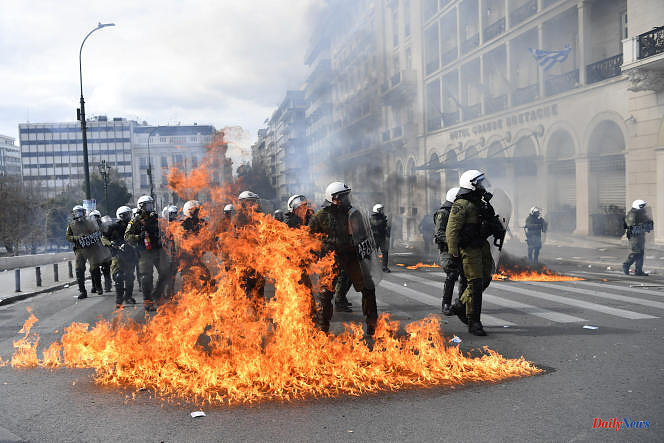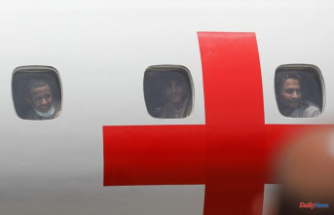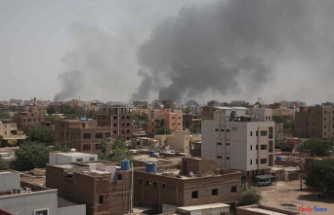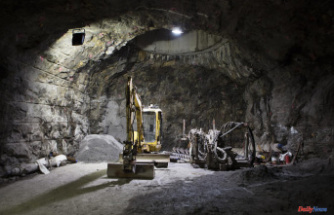More than two weeks after the train disaster that killed 57 people, more than 40,000 Greeks are on the streets again. Violent clashes opposed, Thursday, March 16 in Athens, the police to a group of demonstrators on the sidelines of the angry rallies.
Protesters threw Molotov cocktails and police responded with tear gas and stun grenades not far from Parliament in the center of the capital, according to journalists from Agence France-Presse (AFP).
After a large rally of 40,000 people in Athens on March 8, more than 25,000 people, according to police, gathered in several demonstrations in the center of the capital.
In the middle of the day, demonstrators came to rumble their anger in front of the headquarters of the Hellenic Train railway company, AFP noted, as they had already done three days after the collision between a passenger train connecting Athens in Thessaloniki (North) and a convoy of goods on the evening of February 28, shouting "assassins! ".
In Thessaloniki, the large university city in the North from which many of the victims originated, around 8,500 people also found themselves in the middle of the day. "We won't stop being on the streets until those responsible for this tragedy are punished," said Zoe Konstantinidou, a philosophy student. "They don't care about our lives," she adds as distrust of the Conservative government continues.
Public and private sectors mobilized
The demonstrators responded to the call of the trade unions of the public sector but also, for the first time, of the private sector with a risk of new violence, after clashes on March 8.
"Things have to change in this country," said Stravoula Ghatzieleftheriou, a private sector employee in Athens. "We can't deplore so many deaths, the recent accident, [the deadly fire in 2018] of Mati, the forest fires" in the summer of 2021. "We hope that things will change with the elections" which must be held by July, she adds.
After several small demonstrations in the days following the train crash, some 65,000 people protested on March 8, with some calling on Prime Minister Kyriakos Mitsotakis to resign.
Greece was, moreover, largely paralyzed on Thursday, especially with transport. All boats connecting the mainland to the islands remain docked for twenty-four hours and most planes on the tarmac. Rail traffic should only gradually resume from March 22, according to the Minister of Transport.
Many schools are also closed while students, on the front line in this unprecedented wave of protest since the years of the financial crisis, were also numerous in the processions.
Deterioration of public services
Beyond the train disaster that shook the country, the Greeks are crying their fed up with the deterioration of public services in a country bled white by the years of crisis and the austerity plans imposed by its creditors.
Because if the Tempé rail accident, in the center of the country, was attributed to an error by the station master, it was also caused by the dilapidated state of the rail network and the heavy delays in modernization, in particular signaling , according to the first elements of the investigation. The Greeks are demanding accountability from their leaders accused of negligence.
Struck after the disaster, the Prime Minister tried to respond to the indignation of a population that has largely lost confidence in the institutions since the 2008-2018 crisis. He promised "full transparency" in the ongoing investigation and repeatedly asked for forgiveness from the families of the victims.
This movement of anger is particularly strong among young people and students, while many victims were in higher education. “Tears (…) have become anger, the new generation does not forgive you,” read one of the banners in central Athens.
The demonstrators hold signs with the words "Call me when you arrive", a message from a mother to her child that has become the slogan of this protest. Many young people feel that they have been sacrificed by the drastic savings measures of the crisis years. The liberal daily Kathimerini referred in its last editorial to this "bankruptcy and pandemic generation".












